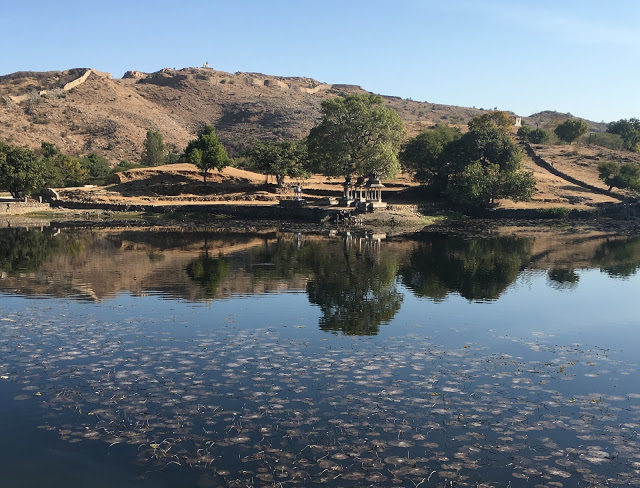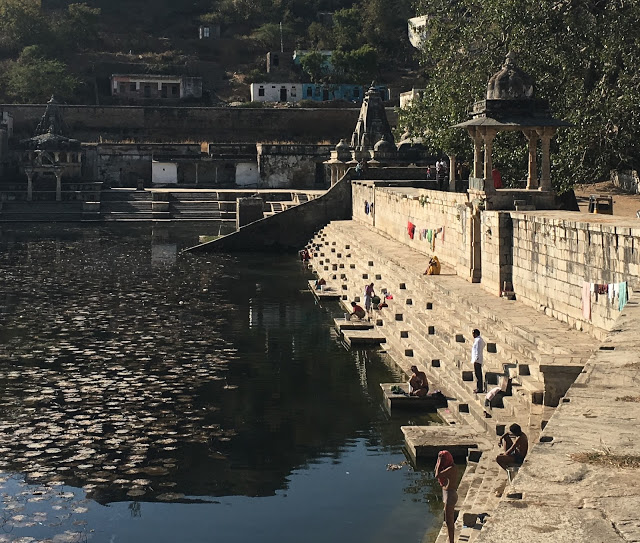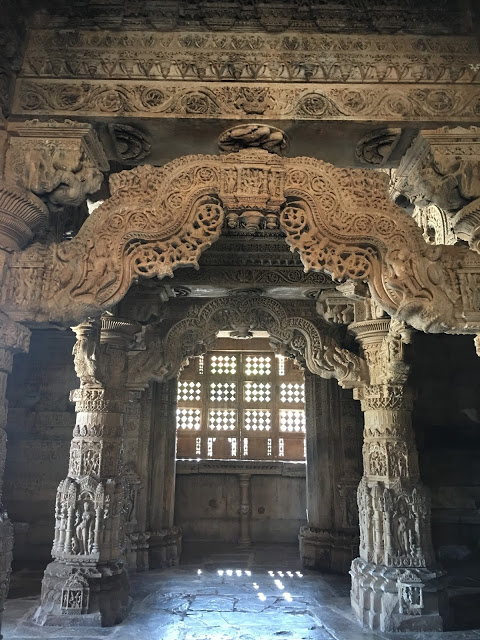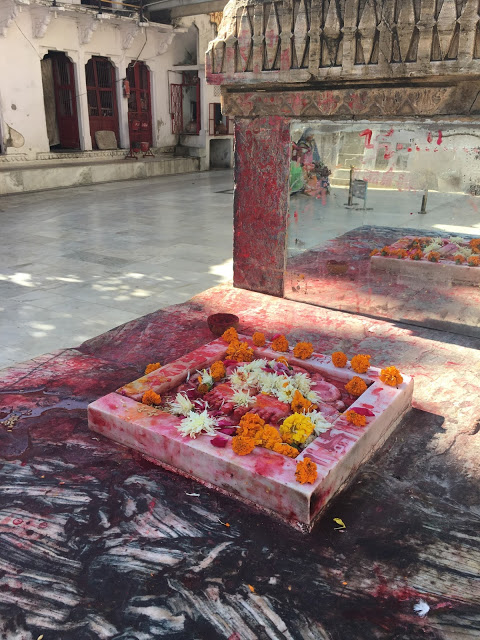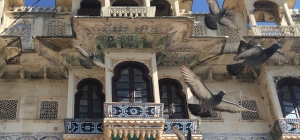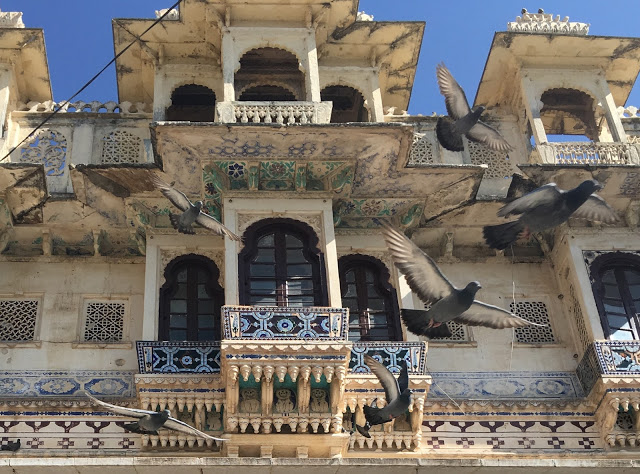
Udaipur, in south-eastern Rajasthan, is often called the “White City”from the locally-mined white marble used to build the palaces lining the blue waters of Lake Pichola set against the backdrop of the ancient Aravalli hills. But I found it bursting with color. It’s winter here — quite chilly at night but bright sunshine high 70s mid-day — and people are often bundled up in blankets and puffy jackets. The old city is filled with narrow hilly streets and traditional shops – tailors, furniture makers, potters, leather imprinters – people who have been doing the same thing for generations. Cows roam around, as do the occasional donkey, goats, and women carrying enormous bundles of wood on their heads. (Only women seem to carry these huge bundles that are as long as they are tall.) Small temples and shrines are everywhere, garishly colored with statues of Shiva, Vishnu and Ganesh wearing garlands of red and yellow flowers. Even trees get in the act and are worshipped as givers of life, painted, with fabric draped around them and incense burning at their roots. The sacred cows do not seem particularly happy to me – garbage appears to be their major food source — and they are kept in tiny pens on the ground floor of their owners houses with open grates where people can leave food “offerings”. I suspect that the life of a cow is pretty miserable wherever it is.
Below are glimpses of the Maharana of Mewar City Palace and Museum (he still lives on the grounds). The princely states of Rajasthan were under economic British control but the separate Maharanas (or Maharajas) were left in nominal control of their fiefdoms, and many still hold the title and property today.

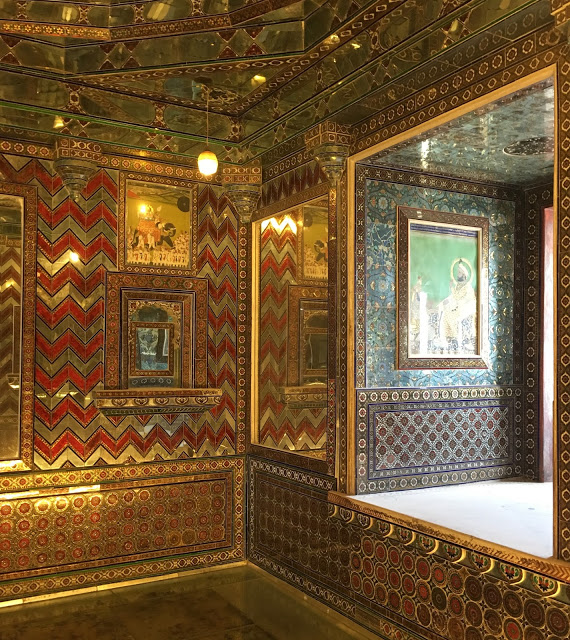
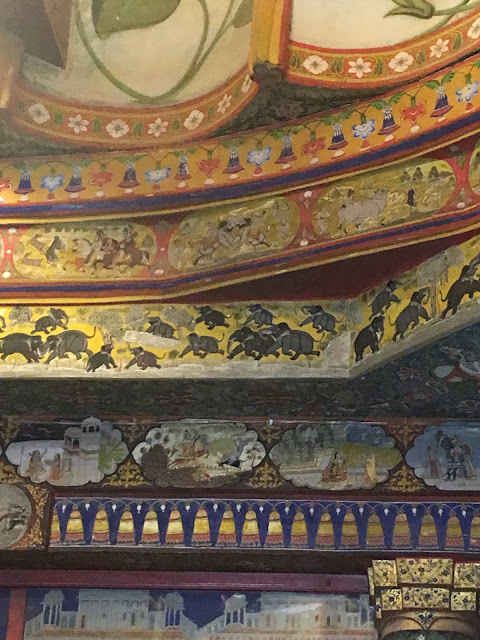
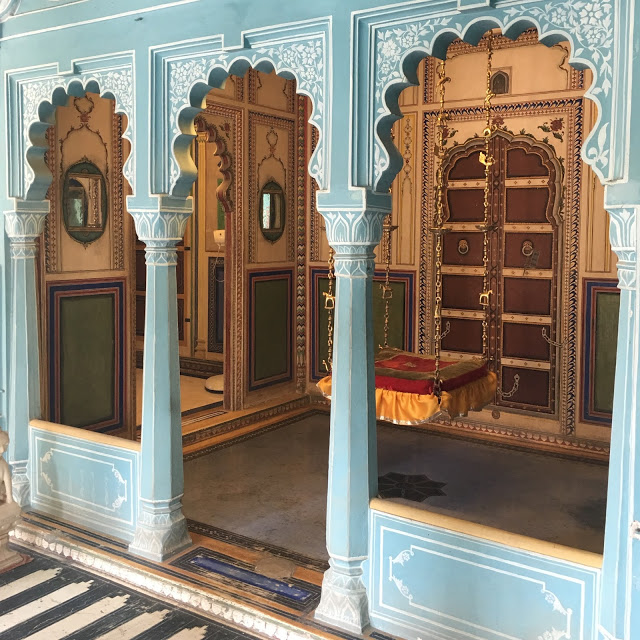
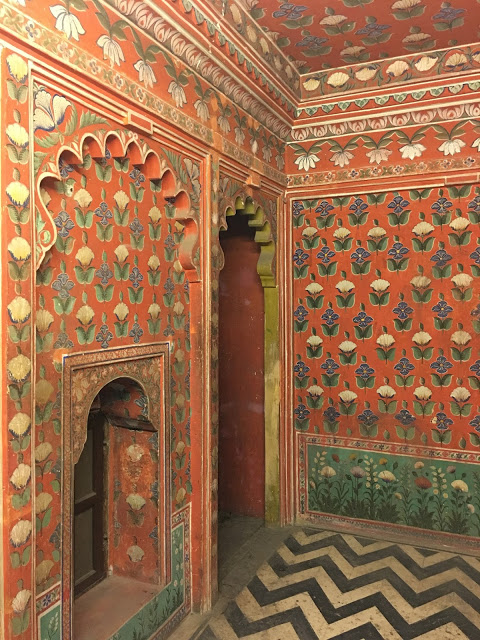
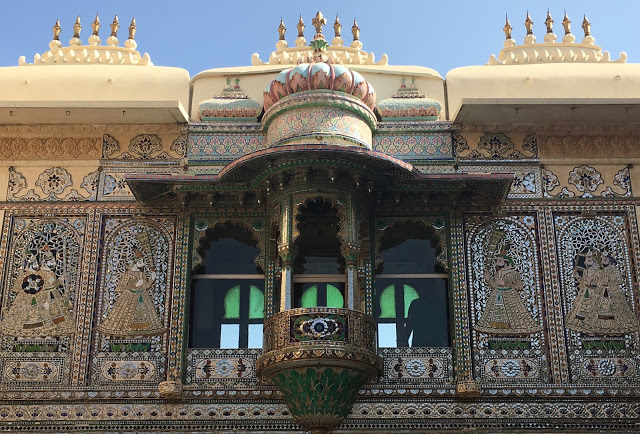

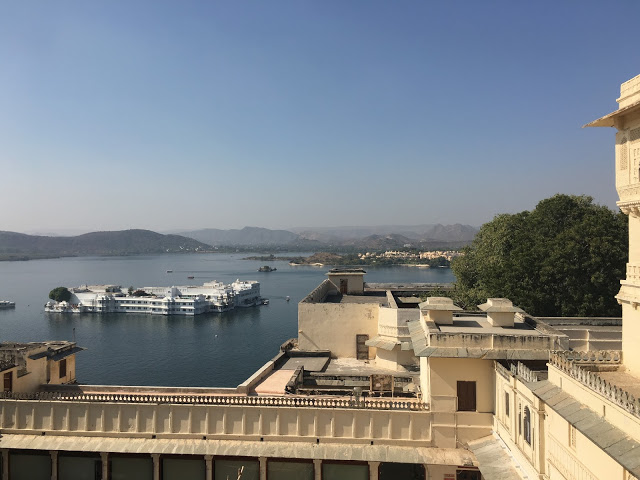
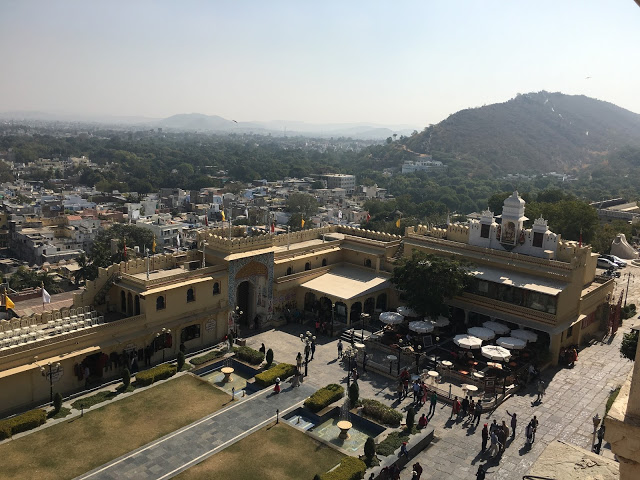
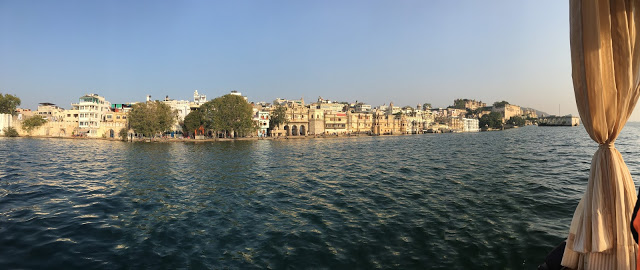
And now for some local color: vegetable markets, saris hanging from painted balconies to dry, street scenes, the occasional elephant, uniformed school children, drawing water from a well, tending shops, preparing food. Life lived — nothing fancy, just purposeful. People are pleasant everywhere – big smiles, low-key sales push – very open and friendly.
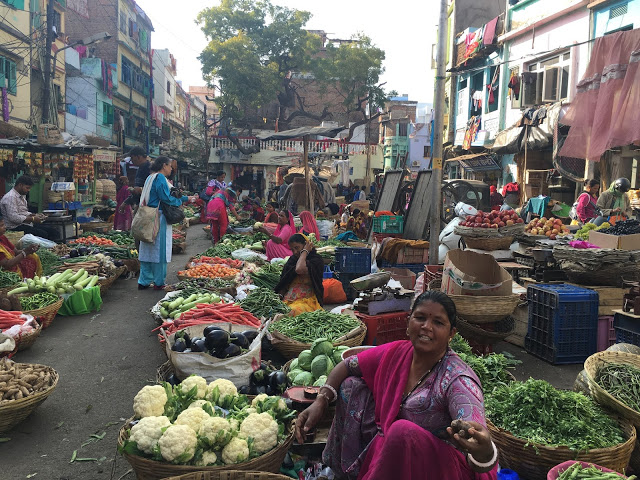
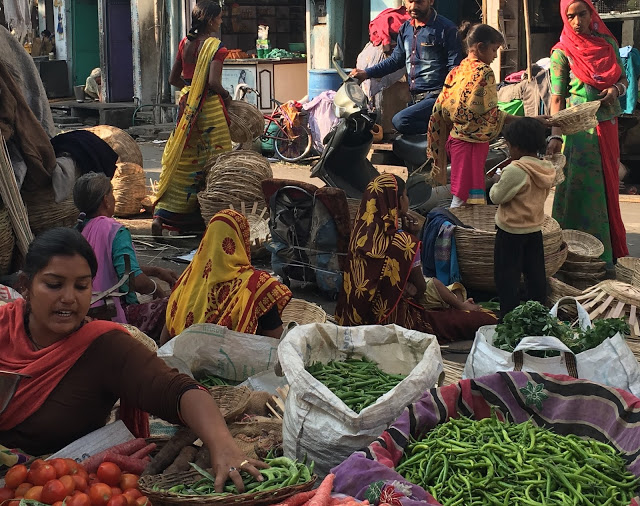
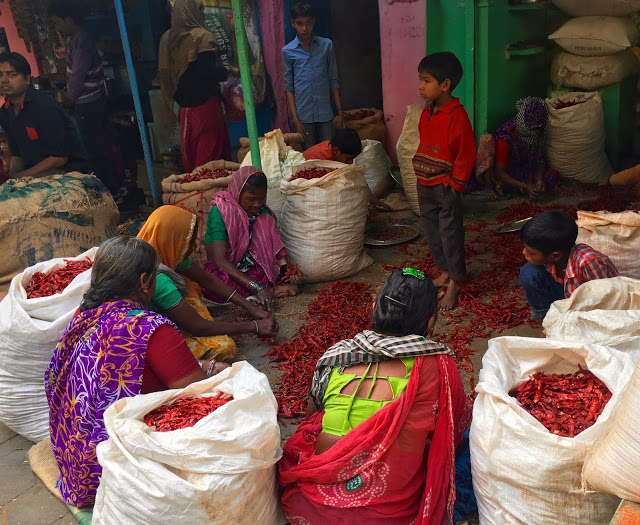
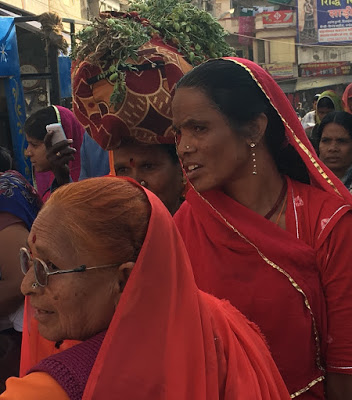
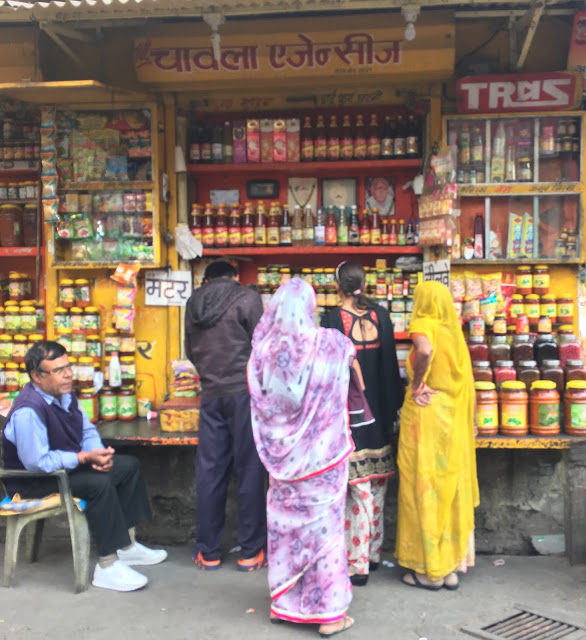
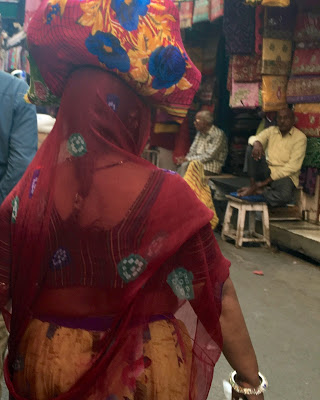
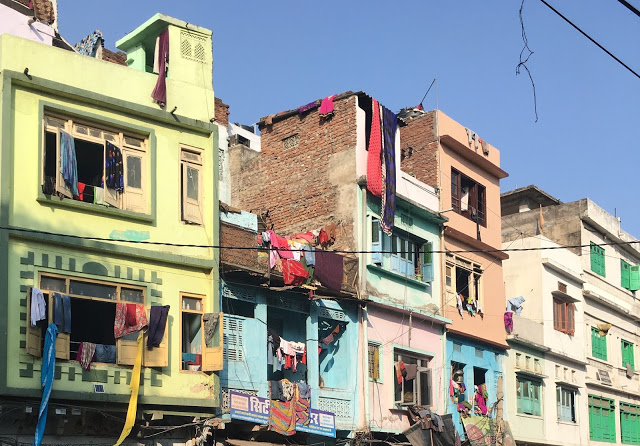
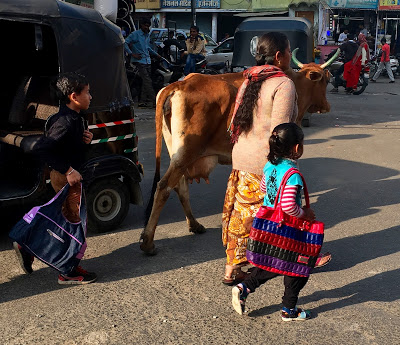
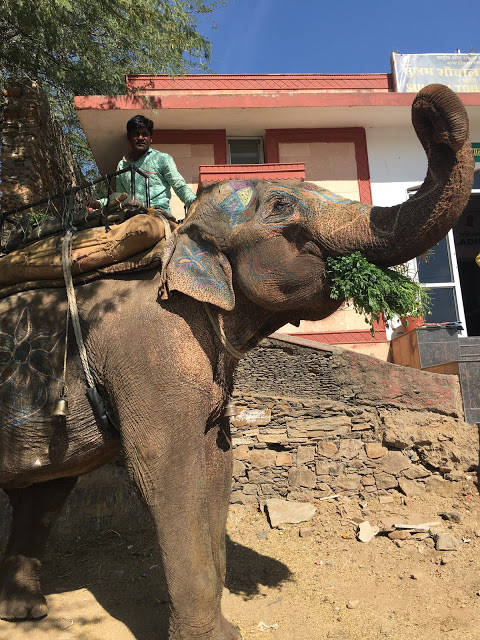
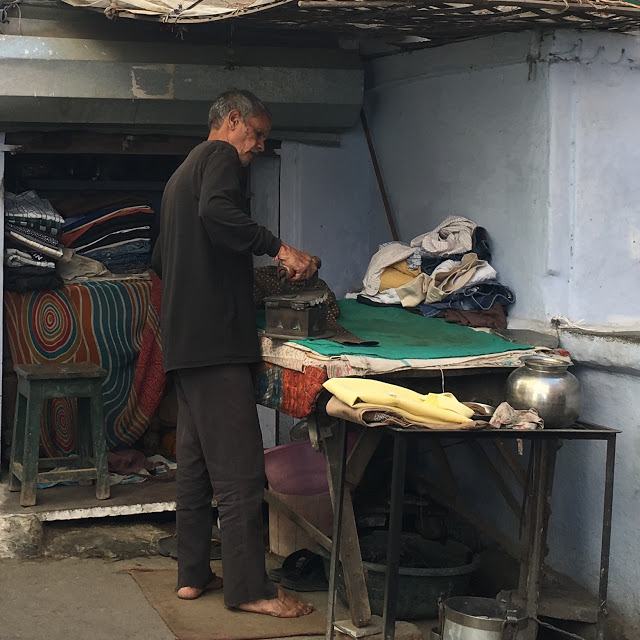
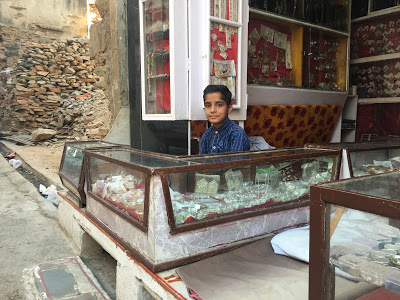
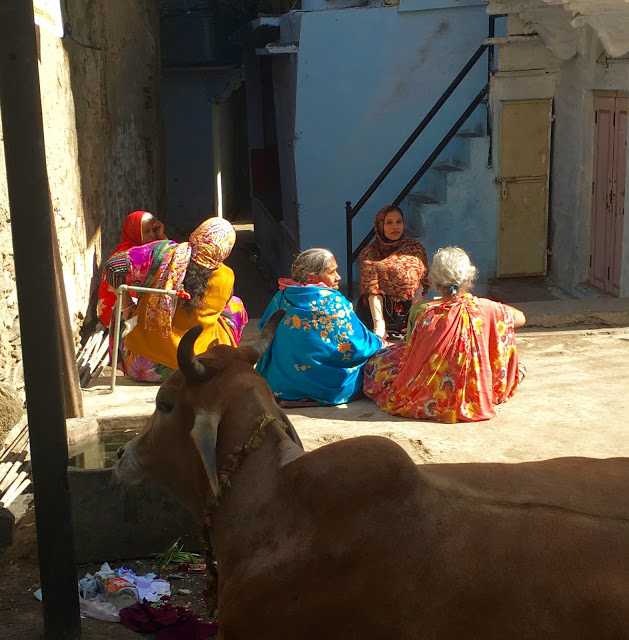
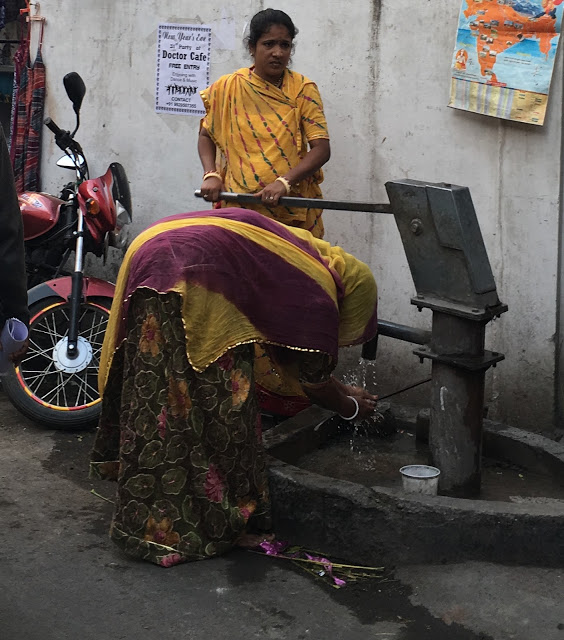
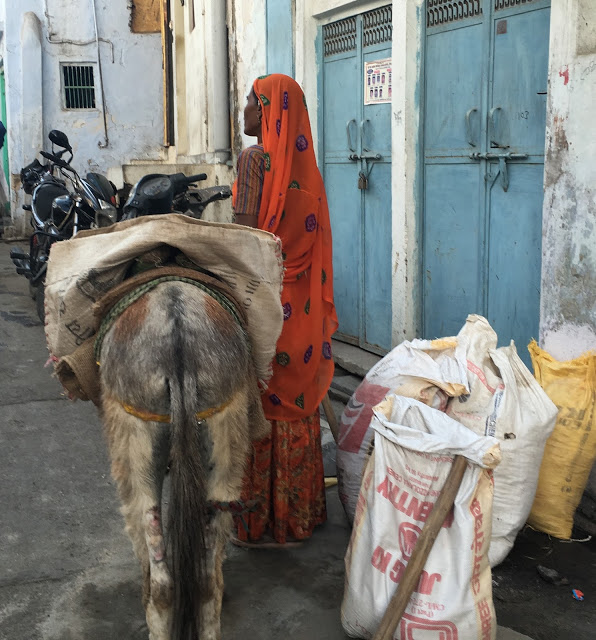
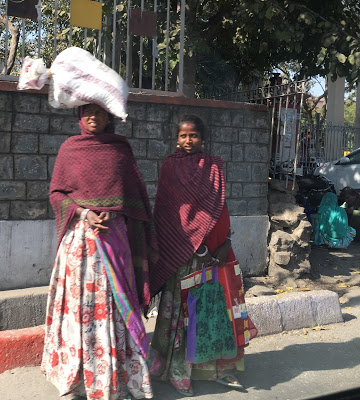
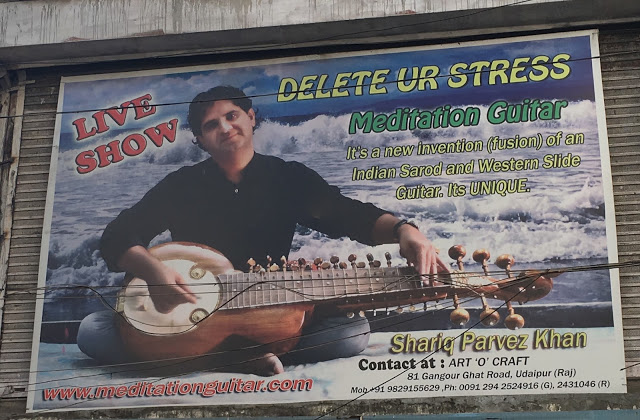
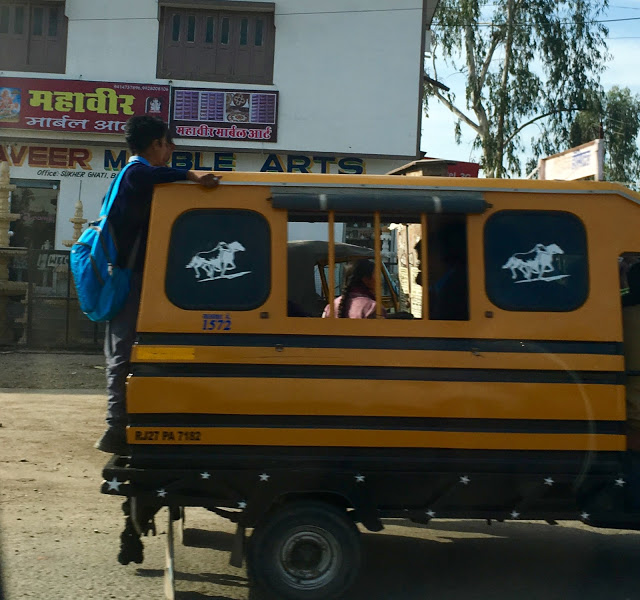
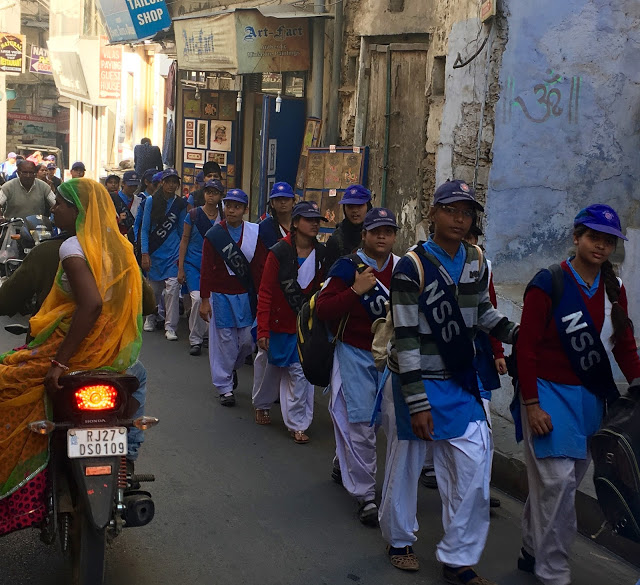
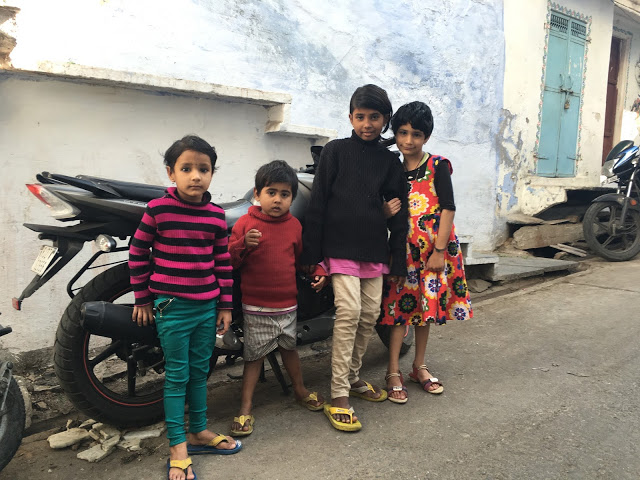
Finally, the temples both operating and historic in Delawara village area near the remarkable Devi Garh heritage property (so remarkable it will get its own blog post!) along with laundry and bathing ghats on a holy lake with cremation sites.
